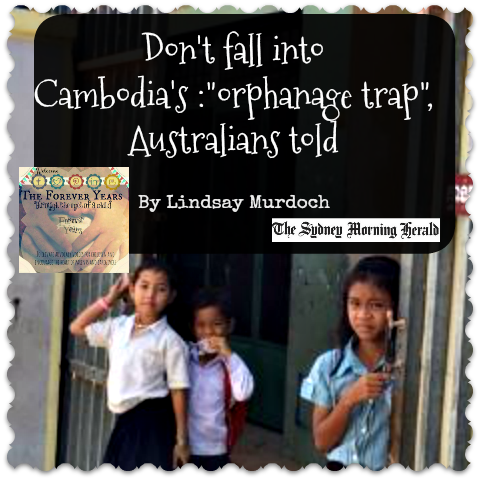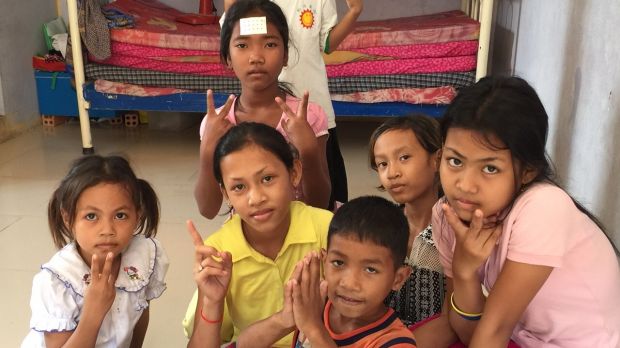 Meet Doreen
Meet Doreen
Doreen Kyalisiima founded and still works in an Orphanage, “Family of Orphans” in Homia, in the Western part of Uganda. Doreen was the eldest of four children. Together with a sister and two brothers, she became a street child at the age of eight, after unfortunate family circumstances, including her father becoming a drug addict. As the eldest child, Doreen took on a parental role in the lives of her younger siblings. They made friends with more young children who were living on the streets, who looked to Doreen as a mother figure. Doreen did housework for payment or food and by the age of 15 was able to rent out two rooms for herself and her siblings (both biological and “adopted”). Later, with support, she formed the orphanage, which was then registered with the Government of Uganda.
 I want the entire world to be aware that there are children here in Uganda who have suffered terribly from abuse, grief and sorrow and who continue to struggle daily for basic necessities. My name is Doreen Kylaisiima and I know this, not only because I work with these children every day, but because I was once one of them.
I want the entire world to be aware that there are children here in Uganda who have suffered terribly from abuse, grief and sorrow and who continue to struggle daily for basic necessities. My name is Doreen Kylaisiima and I know this, not only because I work with these children every day, but because I was once one of them.
My Story
As a young child, things began to go wrong for my two younger brothers, my younger sister and I, when our parents’ marriage broke down. My father had become a drug addict. As well as this, he wanted a divorce: he already had another woman. When my mother, who was from Rwanda, resisted this and struggled to maintain the family for the sake of her children, she became a victim of domestic violence as my father tried to wear her down and get what he wanted. You have to remember, as a foreigner in Uganda, my mother had none of her own relatives around to help or support her. Relatives on my father’s side of the family were loyal to him. I always feel saddened that this loyalty seemed to be ahead of the best interests and well-being of us, his children: we are part of their family too. Eventually, after prolonged abuse which included threats to her life, my mother was forced out of the house. Even then, she was not left in peace. The relatives continued to harass her, including threatening us, her children: we were still living in our father’s house. Finally she was forced to divorce and flee. She returned to Rwanda, leaving us behind with our father, who remarried as soon as he was able.

Map of the continent of Africa, showing Uganda (Circled in red). Source: Google Images.
Our new stepmother had no mercy. She forced us to walk miles and miles to fetch water and firewood deep in the forest, alone and sometimes during the night. We had sleepless nights and restless days with no food in our stomachs. We had to wash piles of clothes, and do all kinds of housework: we were regarded as a source of labor and if we complained at all we were severely beaten– as our mother had been before. Eventually, our father and stepmother must have decided that we were more trouble than use and we too were driven from our home.
Life as Street Children
We were four young children, wandering the streets, homeless. As the eldest, I felt a keen sense of responsibility for my younger siblings. It was tough, I was eight years old. Each day we struggled to find food and water. As evening approached, the important thing each day was finding a safe place to sleep. Such places included in water pipes, under trees and in unfinished building sites or abandoned buildings. I moved from house to house looking for work. I managed to find domestic work for families in exchange for food which I took to share with the younger ones. It is a miracle that we survived: we lived on God’s mercy .

An HIV/ AIDS poster from Uganda. Source: Google Images.
While living on streets I met some other street children. Some were even younger than my siblings and I. They had no one to help them struggle to find food to eat. Even though I was only a child myself, the younger ones were looking to me to help them. Some of their stories were even harder than ours: some had no parents living, they had lost their parents to HIV/AIDS or other diseases or accidents. One or two of these children were very unwell and had HIV or other health problems themselves. They were so vulnerable, there were lots of bad people and things out on the streets. Our main goals were, as I have said, food and a safe place to sleep. We didn’t think about school anymore just, “food and a safe place to sleep, food and a safe place to sleep,” that was our mantra.
“Family of Orphans”
We became a “family of orphans”. Those of us who could worked at domestic work, as I had done. The food we received was always shared out fairly. Time passed. Around the time I was 15 years old, we were able to rent out a two room house. My siblings and I and our “street family” lived there. Word among the homeless children was that this was the place to go if you had no one to love or care for you.
Later, with some support, this became the orphanage “Family of Orphans” and was registered with Government of Uganda’s Ministry of Gender, Children, Community and Social Development. Now I am the Director of the Orphanage.

Doreen (center, front in gray, holding two children) and some of her “Family of Orphans”.
Family of Orphans as it exists Today
“Family of Orphans” is found in a district called Hoima, which is in the Western regions of Uganda. Our primary aim is to help and provide love and nurture to orphans and vulnerable children in Uganda in order to seek their healing from trauma, and to prepare them for a life in the world where they can contribute to society. “Family of Orphans” is a Christian organization. Our motto is “…that not one child in Africa or the entire world will grow up without a chance to improve their lives and their country with the love of Jesus Christ.” We do not, however discriminate about the religious or ethnic backgrounds of the boys and girls who come to us: we do our best to provide help to all who need it. “Family of Orphans” has the obvious and distinct intention of serving the deprived and disadvantaged children of society irrespective of their religion, tribes, cultures, caste, community or gender. We are devoted to the care of orphans whose parents are deceased or otherwise unable to care for them. Through a holistic care approach, we aim to empower children and communities to break the cycle of poverty.
“Family of Orphans” needs support: can you help?

Doreen preparing a meal for her “family”.
At present “Family of Orphans” is responsible for around 120 children. Forty of these live on site, whilst others are in foster homes. We rely on monthly donations to provide for the daily life of the children. Our expenses include food, education, hygiene, rent, maintenance of buildings, health care and staff salaries. To ensure the monthly availability of necessary funds, we look for permanent sponsors who agree to give a fixed amount every month and secure the survival of a child. These sponsors allow us to balance our monthly income with the monthly expenses and ensure that we can continue hosting the children.
“Family of Orphans” still face difficulties in meeting all the children’s necessities, due to lack of enough resources and income. Some orphans have HIV or special needs and require extra medicine or support We kindly seek for your favor and help towards meeting the goals of these children.
“God fathers and God mothers” are the back bone of “Family of Orphans” orphanage. “Family of Orphans” has an estimated monthly budget which is now posted on our web page (see link below) with a donate button for our pay pal account. If you would like to contact us, our details are as follows:

Doreen with two “Family of Orphans” children.
FAMILY OF ORPHANS,
P.O BOX 456,
HOIMA
UGANDA.
Tell: +256778353831.
Email:0778353831kd@gmail.com
Website: http://familyoforphans.e-monsite.com/
Wishing you God’s blessings and love. Lots of thanks from, Doreen Kyalisiima, Director, “Family of Orphans”.
Related Links:
http://a-childs-voice.org/how-many-orphans-are-in-uganda/
http://www.agadoptions.org/international/uganda-adoption-requirements/
 Phnom Penh: Tara Winkler, a former NSW Young Australian of the Year, says it is “highly unethical to expose vulnerable children to serious risks in order to engage donors and raise funds”.
Phnom Penh: Tara Winkler, a former NSW Young Australian of the Year, says it is “highly unethical to expose vulnerable children to serious risks in order to engage donors and raise funds”.







